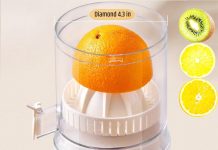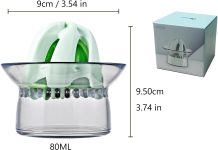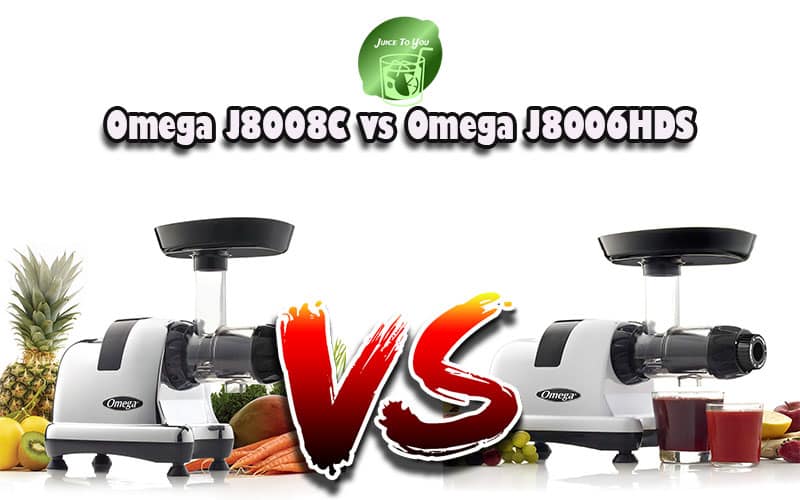Have you ever wondered if consuming fruit juice is a suitable replacement for eating whole fruits? In this article, we explore the question of whether drinking juice can provide the same nutritional benefits as consuming actual fruits. We discuss the potential advantages and disadvantages of each option, helping you make an informed decision about which choice works best for you. So, grab a glass of juice or a juicy piece of fruit, and join us on this journey to uncover the truth about fruit juice versus whole fruits.
Review contents
Pros and Cons of Drinking Juice
Juice has long been a popular beverage choice for people of all ages. It is refreshing, tasty, and can provide a quick energy boost. However, like most things, there are pros and cons to drinking juice. In this article, we will explore the nutritional content, sugar content, fiber content, digestion, and hydration aspects of drinking juice, as well as the advantages and disadvantages of this beverage.
Nutritional Content
When it comes to the nutritional content of juice, it varies depending on the type of juice and the method of extraction. Some juices, such as orange juice, are rich in vitamin C, while others, like carrot juice, are packed with vitamin A and antioxidants. These vitamins and antioxidants are essential for maintaining good overall health and boosting the immune system.
Sugar Content
One of the biggest concerns when it comes to drinking juice is the sugar content. While fruit naturally contains sugar, when it is juiced, the sugar is concentrated, leading to a higher sugar content in the juice. This can be problematic, especially for individuals with diabetes or those looking to manage their sugar intake. It is important to be mindful of the sugar content in juice and opt for freshly squeezed juice or those without added sugars.
Fiber Content
Fiber is an essential component of a healthy diet. It aids in digestion, helps regulate blood sugar and cholesterol levels, and promotes a feeling of fullness. Unfortunately, when fruits are juiced, the fiber content is greatly reduced. This is because most of the fiber is found in the skin and pulp of the fruit, which is typically removed during the juicing process. Therefore, consuming whole fruits is a better choice for those seeking to increase their fiber intake.
Digestion
Proper digestion is crucial for the body to absorb nutrients and maintain overall health. While juice can be easily digested since the nutrients are already broken down, it does not require much effort from the digestive system. This can be both an advantage and a disadvantage. On one hand, it allows for quick absorption of vitamins and minerals. On the other hand, it may result in a faster spike in blood sugar levels and a lack of satiety compared to consuming whole fruits.
Hydration
Staying hydrated is essential for maintaining bodily functions and overall well-being. Drinking juice can be a great way to stay hydrated, especially for individuals who struggle to drink plain water. The high water content in juice helps replenish fluids and prevent dehydration. However, it is important to note that juice should not be the sole source of hydration, as it lacks the electrolytes and other essential components found in water.
Advantages of Drinking Juice
Convenient and Quick
One of the main advantages of drinking juice is its convenience and speed. With busy lives and hectic schedules, many people find it difficult to consume enough fruits and vegetables on a daily basis. Juice provides a convenient solution since it can be prepared in advance and consumed on-the-go. This allows us to meet our recommended daily intake of fruits and vegetables more easily.
Variety of Flavors
Another great advantage of drinking juice is the wide range of flavors available. From citrusy orange to tangy pineapple to earthy beet, there is a juice flavor for every palate. This variety allows us to experiment with different juices and keep our taste buds satisfied. Additionally, mixing different fruits and vegetables together can create unique and delicious flavor combinations.
Easy to Consume for Some
For individuals who have difficulty eating whole fruits due to dental issues, digestive problems, or swallowing difficulties, drinking juice can be a viable alternative. Juice allows them to still obtain the essential vitamins, minerals, and antioxidants found in fruits, without the need for extensive chewing or digestion. It can be a convenient and enjoyable way to ensure proper nutrition.
Absorption of Nutrients
Drinking juice enables the body to quickly absorb the nutrients present in the fruits. Since the juice is already in liquid form, it bypasses the need for digestion and the breaking down of the fruit’s cellular structure. This makes the vitamins, minerals, and antioxidants readily available for the body to utilize. It can be especially beneficial for individuals with compromised digestive systems or those recovering from illness.
Disadvantages of Drinking Juice
Loss of Fiber
As mentioned earlier, one of the main disadvantages of drinking juice is the loss of fiber. While juice can still provide some of the vitamins and minerals found in fruits, it lacks the dietary fiber that is crucial for digestive health. Fiber aids in regular bowel movements, helps control blood sugar levels, and promotes feelings of fullness. Without fiber, the body may not efficiently process nutrients, leading to potential health issues.
High Sugar Content
Due to the concentration of natural sugars in juice, it often contains a high sugar content. This can be problematic, especially for individuals who are watching their sugar intake or have diabetes. Excessive sugar consumption has been linked to various health issues, including weight gain, tooth decay, and an increased risk of chronic diseases such as heart disease and type 2 diabetes. It is important to consume juice in moderation and choose options with lower sugar content.
Less Satiety
Compared to eating whole fruits, drinking juice may not provide the same level of satiety or feeling of fullness. This is because the fiber content, which contributes to satiety, is significantly reduced in juice. As a result, individuals may be more prone to overeating or snacking shortly after consuming juice, leading to potential weight gain and poor hunger management.
Possible Weight Gain
The high sugar content and decreased fiber content in juice can contribute to weight gain if consumed in excess. Sugar, especially in liquid form, can quickly elevate blood sugar levels and trigger the release of insulin, which promotes the storage of fat. Additionally, the lack of fiber in juice can result in a less satisfying eating experience, potentially leading to the consumption of more calories overall.
Health Benefits of Eating Whole Fruits
While juice can be a convenient and refreshing option, there are undeniable health benefits to consuming whole fruits. Here are some reasons why eating whole fruits is advantageous:
Essential Fiber
Whole fruits are an excellent source of dietary fiber. Fiber aids in digestion, prevents constipation, and promotes gut health. It also helps regulate blood sugar levels and can contribute to a healthy weight management plan. By consuming whole fruits, we can ensure we are receiving the necessary fiber our bodies need.
Lower Sugar Content
In general, whole fruits have a lower sugar content compared to their juice counterparts. This is because the fiber in whole fruits slows down the digestion and absorption of sugar, preventing rapid spikes in blood sugar levels. With whole fruits, we can enjoy the natural sweetness without worrying about excessive sugar intake.
Improved Digestive Health
The fiber found in whole fruits acts as a gentle cleanser for the digestive system, promoting regular bowel movements and preventing constipation. It also helps feed the beneficial bacteria in our gut, contributing to a healthy gut microbiome. By eating whole fruits, we can support our digestive health and overall well-being.
Natural Satiety
Due to the fiber content, whole fruits provide a greater sense of satiety compared to drinking juice. The fiber takes longer to digest, resulting in a slower release of sugar into the bloodstream and a prolonged feeling of fullness. This can help prevent overeating and promote healthy portion control.
Weight Management
Incorporating whole fruits into our diet can be beneficial for weight management. The fiber, water, and volume of whole fruits can help us feel satisfied while consuming fewer calories. By choosing whole fruits over juice, we can reduce our calorie intake and support weight loss or maintenance goals.
Is Juice a Healthy Replacement for Fruits?
The question of whether juice can be a healthy replacement for fruits has no straightforward answer. It largely depends on various factors, including the type of fruit, the method of extraction, the presence of unhealthy ingredients, the serving size, and the overall balance and moderation in our diet. Here are some considerations:
Depends on the Fruit
Not all fruits are suitable for juicing. Some fruits, like oranges and apples, juice well and retain their nutritional value. However, others, such as bananas and avocados, are not ideal for juicing due to their texture and composition. It is important to choose fruits that are suitable for juicing and ensure they are consumed in moderation.
Freshly Squeezed vs. Store-Bought
There is a significant difference between freshly squeezed juice and store-bought packaged juice. Freshly squeezed juice contains more vitamins, minerals, and antioxidants since it is consumed shortly after extraction. On the other hand, packaged juice often undergoes processing and may contain added sugars, preservatives, or artificial flavors. If possible, opt for freshly squeezed juice or read labels carefully when purchasing store-bought options.
Unhealthy Ingredients
Some commercially available juices may contain unhealthy ingredients, such as added sugars, artificial sweeteners, or preservatives. These additives can diminish the health benefits of juice and contribute to weight gain or other health issues. It is important to read labels and choose juices with minimal additives or prepare homemade juices without adding additional sugars.
Serving Size
Moderation is key when consuming juice as a replacement for whole fruits. While juice can be a convenient way to increase fruit intake, it is important to be mindful of portion sizes. Consuming excessive amounts of juice can lead to an overconsumption of calories, sugars, and potential weight gain. Consider limiting juice intake to one serving per day and complementing it with whole fruits.
Balance and Moderation
While juice can have its benefits, it is essential to maintain a balanced and varied diet that includes whole fruits and other nutritious foods. Juice should not be the sole source of fruit intake, as it lacks the dietary fiber and other beneficial components found in whole fruits. Aim for a balance between juice and whole fruits, and prioritize consuming whole fruits whenever possible.
Conclusion
Drinking juice can be a convenient and enjoyable way to increase our intake of vitamins, minerals, and antioxidants found in fruits. However, it is important to consider the pros and cons. While juice provides quick and easily digestible nutrients, it lacks the fiber content and may contain high amounts of sugar. Eating whole fruits, on the other hand, offers essential fiber, lower sugar content, improved digestive health, natural satiety, and weight management benefits. Ultimately, the best approach is to strike a balance, incorporating both juice and whole fruits into our diet, and ensuring moderation and mindfulness in our consumption.

































